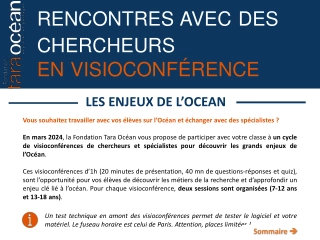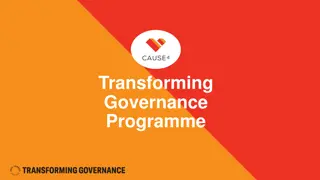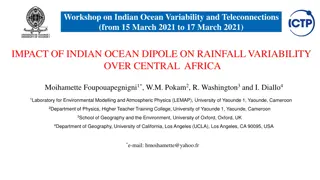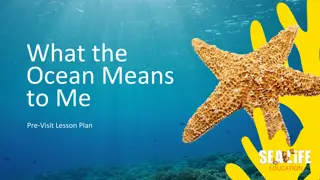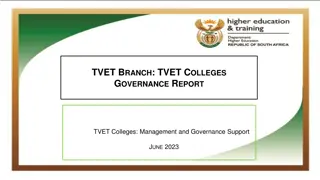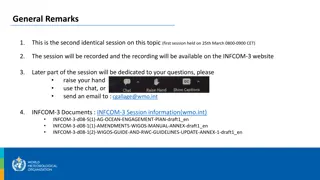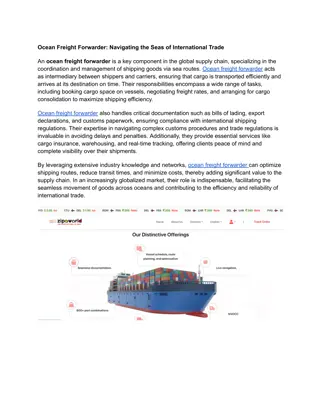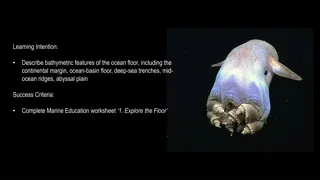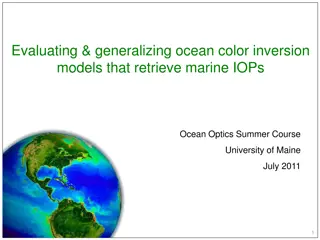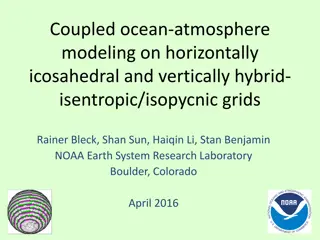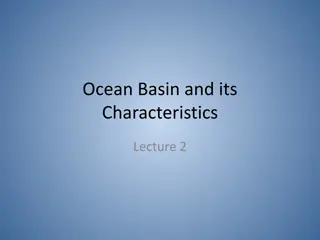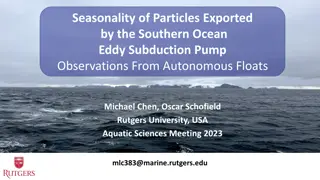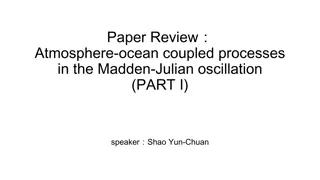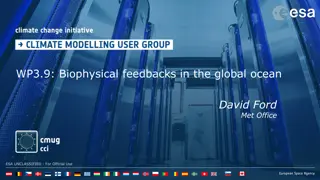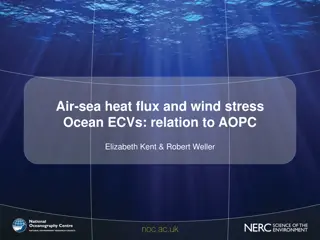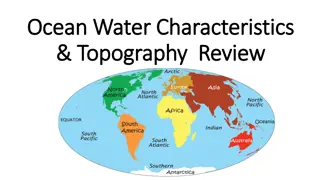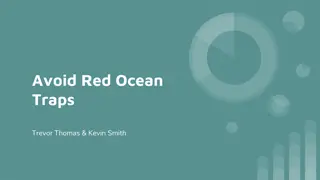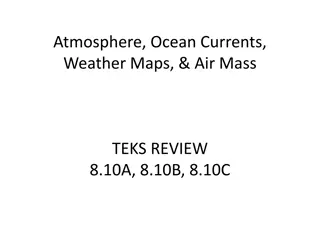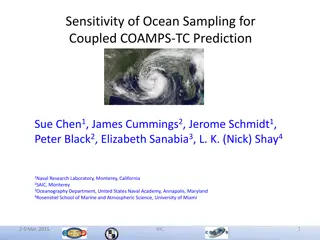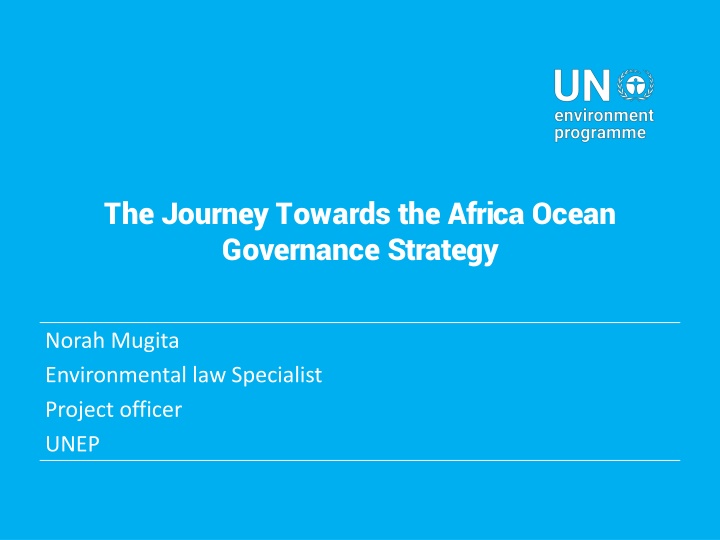
Africa's Ocean Governance Strategy for Sustainable Development
Explore the importance of strengthened ocean governance in Africa to ensure sustainable management of marine resources. Learn about the potential gains and losses, as well as the mandates from AMCEN and the African Union towards adopting an Africa Ocean Governance Strategy by 2023.
Download Presentation

Please find below an Image/Link to download the presentation.
The content on the website is provided AS IS for your information and personal use only. It may not be sold, licensed, or shared on other websites without obtaining consent from the author. If you encounter any issues during the download, it is possible that the publisher has removed the file from their server.
You are allowed to download the files provided on this website for personal or commercial use, subject to the condition that they are used lawfully. All files are the property of their respective owners.
The content on the website is provided AS IS for your information and personal use only. It may not be sold, licensed, or shared on other websites without obtaining consent from the author.
E N D
Presentation Transcript
The Journey Towards the Africa Ocean Governance Strategy Norah Mugita Environmental law Specialist Project officer UNEP
Why a strengthened ocean governance in Africa? Need to make integrated ocean policy decisions across sectors through regional and cross-sectoral cooperation and coordination. Sustained contribution of oceans to spur economies heavily depends upon the presence and use of effective governance frameworks, Value of ecosystems goods and services provided by our oceans are not lost or degraded through the impacts of human activities
Africas Gains on oceans Africa s Gains on oceans By 2030, the blue economy could contribute up to US$1.5 trillion blue economy generates nearly US$300 billion annually for the continent, supporting approximately 49 million jobs. 90% of the continent s imports and exports are conducted by sea Fisheries and aquaculture contribute approx. US$24 billion Coastal tourism currently generates 8.1% of the continent s GDP valued at over $177 billion and 6.5% of total employment African ports are projected to handle approx 2 billion tonnes of cargo by 2040
Africa's losses overexploitation of fishery resources at approx. $225 million for WIO island economies IUU fishing - $10 billion - $23 billion worldwide Oil producing countries in W. Africa discharge about 4 million tonnes of waste oil yearly into marine environment by 2050-more plastics than fish in oceans 2014, mangrove deforestation estimated loses in US$42 billion annually coral cover, across the continent has declined to 30 percent
AOGs Mandate - AMCEN 15th AMCEN (2015, Cairo): Called for an Africa Ocean Governance Strategy in line with UNCLOS and regional seas conventions. 18th AMCEN (2022, Dakar): Reaffirmed the need for regional ocean governance mechanisms for coordination 2015 2018 2022 2023 7th Special Session of AMCEN (2018, Nairobi): Urged for the promotion of the sustainable blue economy and mainstreaming of aquatic biodiversity in the AOGs 19th AMCEN (2023, Addis Ababa): Called for finalization and adoption of the Africa Ocean Governance Strategy.
AOGs Mandate- Africa Union 2017 and 2019 STC Decisions endorsed AMCEN Africa Union Specialized Technical Committee (STC) on Agriculture, Rural Development, Water, and Environment endorsed AMCEN s decisions. Reinforcement at 2023 STC Session 5thOrdinary Session emphasized Africa s aquatic biodiversity governance Endorsed mechanisms to enhance AU Member States participation in international ocean governance processes. AUC tasked with coordinating and monitoring implementation to reinforce Africa s global influence in ocean governance.
Issues Paper on Ocean Governance in Africa Issues Paper on Ocean Governance in Africa Issues paper commissioned by AMCEN and key gaps identified: Institutional Fragmentation Legal and Policy Gaps Capacity Constraints Data and Information Deficiencies Limited Stakeholder Engagement Funding Challenges Climate Change and Environmental Threats Conclusion: Addressing gaps requires a coordinated approach, enhanced legal frameworks, and strengthened institutional capacity.
Zanzibar Scoping Mission Zanzibar Scoping Mission 23-25 July 2018, Zanzibar Facilitated by The Institute of Marine Sciences, University of Dar es Salaam, AU and UNEP Objective: Facilitate a scoping workshop to identify gaps and linkages in ocean governance in Africa. Key Observations and Outcomes UNEP tasked with supporting the development of AOGs Development of an annotated outline for the strategy. Scoping mission laid the foundation for a structured approach to African Ocean Governance, highlighting critical areas for intervention and coordination.
First Consultative Meeting November 2018 in Nairobi Discussed elements of the strategy and scope of the strategy Scope should include exclusive economic zones, adjacent Areas Beyond National Jurisdictions and freshwater bodies having a profound effect on marine and coastal ecosystems. Elements: Cooperation and coordination multisectoral approach Science-policy interface Stakeholder engagement Discussed initial governance models for consideration
Second Consultative Meeting 21 and 22 October 2020- virtually Held to refine the elements of the strategy Refined elements: linkages to regional and global structures Cooperation and coordination Implementation of existing and future strategies ecosystem approach and science for ocean governance blue economy and stakeholder participation
Third Consultative Meeting Online, 15 and 16 June 2021 UNEP presented the draft AOGs for review UNEP presented 5 governance options Inter-Agency Coordination Mechanism African Ocean Governance Platform/Forum African Ocean Financial Facility African Continental Oceanographic Center Business & Stakeholder Forum Countries recommended that a hybrid of all 5 should be considered There was also Consensus on Core Governance Principles Recommendations for Policy Alignment with AU and UN frameworks
Outcome of the consultative processes Establish a small working group: AUC, UNEP, experts etc. to revise the draft strategy Develop an action plan and its financial implications based on hybrid option Elaborate on monitoring and evaluation mechanisms Submit the revised draft strategy to member States and stakeholders for Validation
WIO Regional Ocean Governance Meeting Held in Swakopmund, Namibia, 26 28 JUNE 2024 Presentation of the Africa Ocean Governance Strategy in the meeting Key takeaways Emphasized the need for a single, coherent continental framework to guide ocean governance. WIO ROGS and other sub-regional efforts are continuing in parallel with continental strategy development. Alignment between continental, sub-regional, and national strategies is essential for integrated ocean governance. An implementation plan for the AOGs is necessary for effective execution, coordination, and accountability. This meeting reinforced the urgency of finalizing the AOGs for a harmonized ocean governance across Africa
Working Group Write-shop 16-18 September 2024, Mombasa, Kenya Finalization of the Africa Ocean Governance Strategy Developed Implementation Plan: Includes funding mechanisms & monitoring indicators Governance Framework: Hybrid model included
Implementation Roadmap Apr. 2025 Oct. 2025 Validation Workshop with Member States Adoption by AUC STC Submission to AMCEN (20th Session) AU Heads of State Endorsement July 2025 2026

